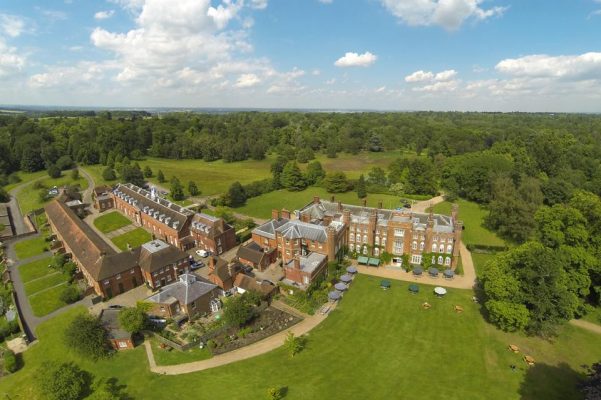Digital Humanities and Computational Social Sciences

Date/Time: 26th June 2018, 9.30am – 6:00pm
Organisers: Christopher Burr and Nello Cristianini
The availability of large digital corpora (e.g. books, newspapers, social media) is creating new opportunities for scholars in the humanities and the social sciences. The application of modern big-data analysis techniques to these datasets can provide new insights into society, culture and history, enabling (not replacing) scholars. Recent work has shown how the analysis of historical newspapers can reveal information about trends, biases, and changes in our past; how social media content can carry information about social transitions and attitudes; and how digitised books could teach us something about language and culture. As some of these tasks could not realistically be performed by hand, while others cannot be fully automated, an important debate in this area concerns which kind of questions should be addressed by semi-automated means, and how humans and machines can best complement each other.We will discuss aspects concerned with the mass-acquisition of digital text from historical documents; the acquisition of behavioural observations from web users; the analysis of this data by automated means; and the use of text for psychometric analysis. We will debate what is now possible by applying quantitative thinking in the humanities and social sciences, based on the present data and technologies; what we can learn about ourselves from this digital data; how can there be a productive collaboration between data science, social science and humanities; and what cannot or should not be left to machines.
This workshop will try to identify the current state of the art, and the forthcoming challenges.
Programme
- 9:30 – 10.00: Coffee & Registration
- 10.00 – 10.30: Nello Cristianini (Professor of Artificial Intelligence, University of Bristol) — “Introduction”
- 10.30 – 11.10: Fiona Courage (Head of Special Collections and Curator of Mass Observation, University of Sussex) — “On Mass Observation“: Mass Observation has been collecting data on the British People for over 80 years, highlighting the everyday and ordinary experiences and opinions that would otherwise have been lost to history. This paper will look at how Mass Observation has gone about this work since its foundation in 1937, and how it has had to adapt in recent decades as we enter an era in which recording and broadcasting everyday lives has become commonplace.
- 11.10 – 11.50: Saba Syed (Head of Business Development – Digitisation Services, British Library)— “Mass Digitisation of Historical Newspapers”
- 11.50 – 12.10: Coffee Break
- 12.10 – 12.40: Tom Lansdall-Welfare (Postdoctoral Researcher in Machine Learning, University of Bristol) — “Large-scale Automated Content Analysis”
- 12.40 – 13.20: James W. Pennebaker (Regents Centennial Professor of Psychology, University of Texas) — The development of a word counting method to better understand texts, people, and cultures: LIWC
- 13:20 – 14:20: Lunch
- 14:20 – 15.00: Anton Howes @antonhowes (Lecturer in Economic History at the Department of Political Economy, King’s College London) — “The Digitisation of Economic History: progress, problems, and lessons.”
- 15.00 – 15.40: Bob Nicholson @DigiVictorian (Senior Lecturer in History, Edge Hill University) — “The Digital Turn in Humanities Research”
- 15.40 – 16.20: Julianne Nyhan @juliannenyhan (Senior lecturer in Digital Information Studies, University College London) — “What can the Humanities do for digital technologies?”: In this talk I will describe and exemplify some of Digital Humanities’ central approaches to the formation and transformation of knowledge. I will draw on case studies related to my research (including ‘Enlightenment Architectures: Sir Hans Sloane’s Catalogues of his collections’, a collaboration with the British Museum and the Marie Curie-funded Critical Heritage Studies and the Future of Europe (CHEurope) project) in order to explore the new perspectives that digital techniques have brought to Humanities and Heritage research. At the same time I will point to some of the Humanities perspectives that have not been adequately integrated into the digital research field (writ large) and argue that the development of a more critical Digital Humanities will benefit the Humanities and digital technologies alike.
- 16.20 – 16.40: Coffee Break
- 16.40 – 17.20: Roberto Franzosi (Professor of Sociology and Linguistics, Emory University) — “Big data or small data? How computer scientists can help humanists and social scientists (AND viceversa)”
- 17:20 – 18:00: Panel Discussion on Digital Humanities with Fiona Courage, Roberto Franzosi, Anton Howes, and Bob Nicholson (Chair: Saatviga Sudhahar)
Registration details
Additional (Optional) Workshop
How to reach Cumberland Lodge
Cumberland Lodge is located in Windsor Great Park, an ancient royal hunting forest and part of the Crown Estate (see on Google maps).
By air:
Cumberland Lodge is about 20 minute taxi ride from Heathrow Airport. From Gatwick there is the choice of train into London, then via Waterloo to Egham (the closest station to Cumberland Lodge), and from there by taxi.
By rail:
From London Waterloo to Egham the journey time is approximately 37 minutes. From Reading and the west there is a direct service to Egham (Reading —Waterloo line). Egham station is 3.5 miles or 10 minutes by taxi from Cumberland Lodge
By road:
Cumberland Lodge can be reached via M25, from the west via M40 & M4 and from the south via M3 & A30. More details are available on Cumberland Lodge website.
Contact information:
Cumberland Lodge email: enquiries@cumberlandlodge.ac.uk and phone number: 01784 432316
